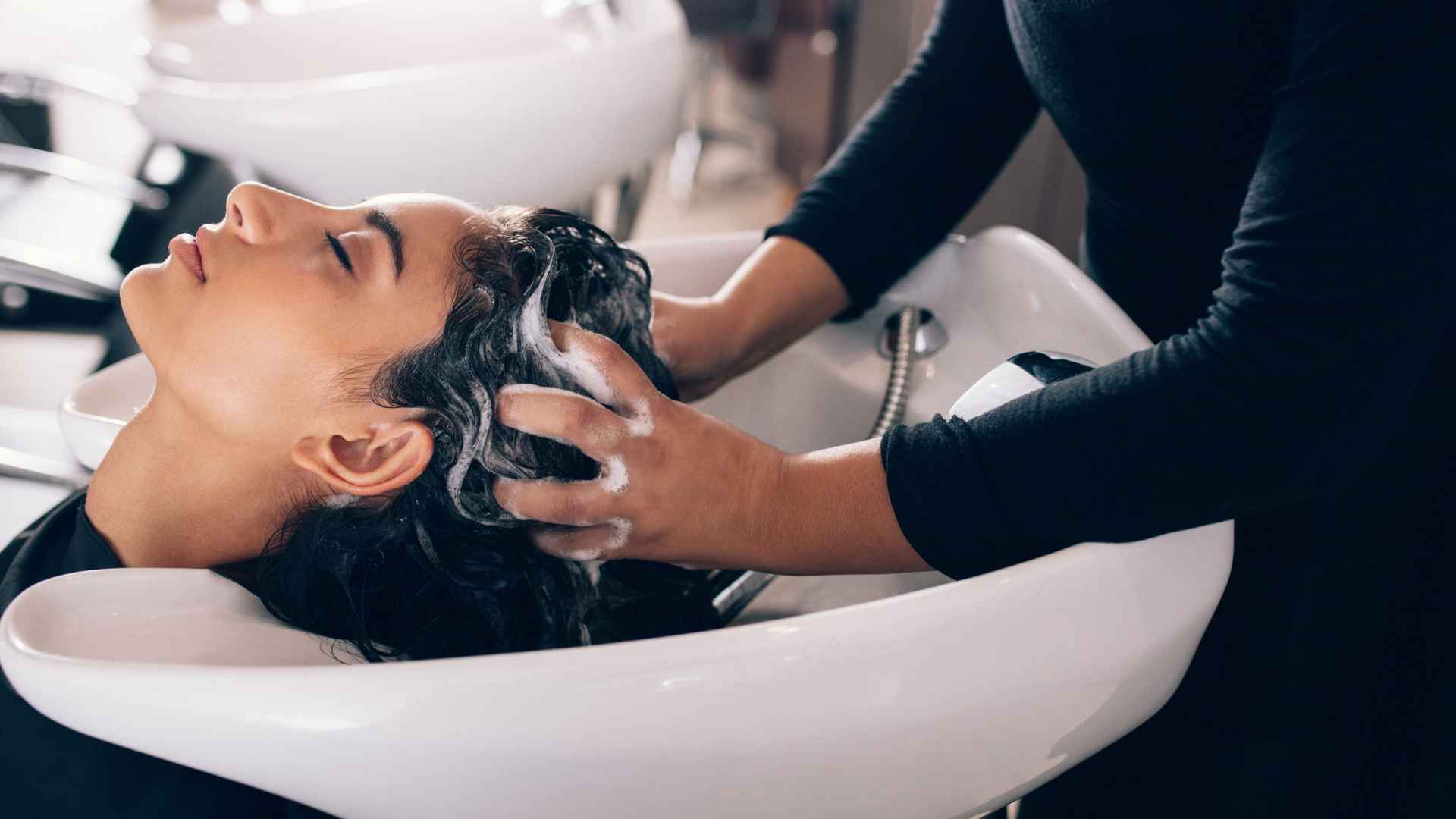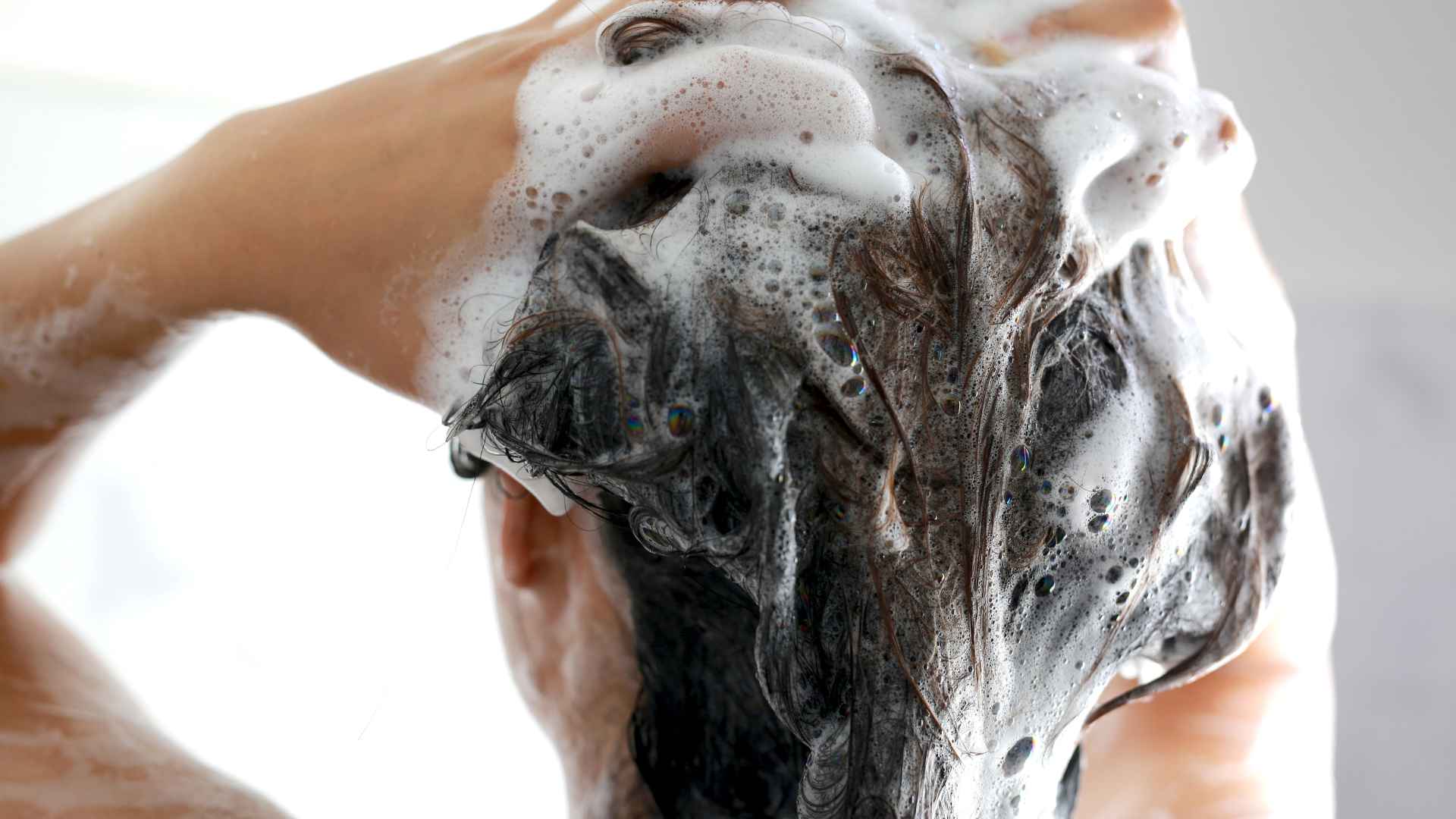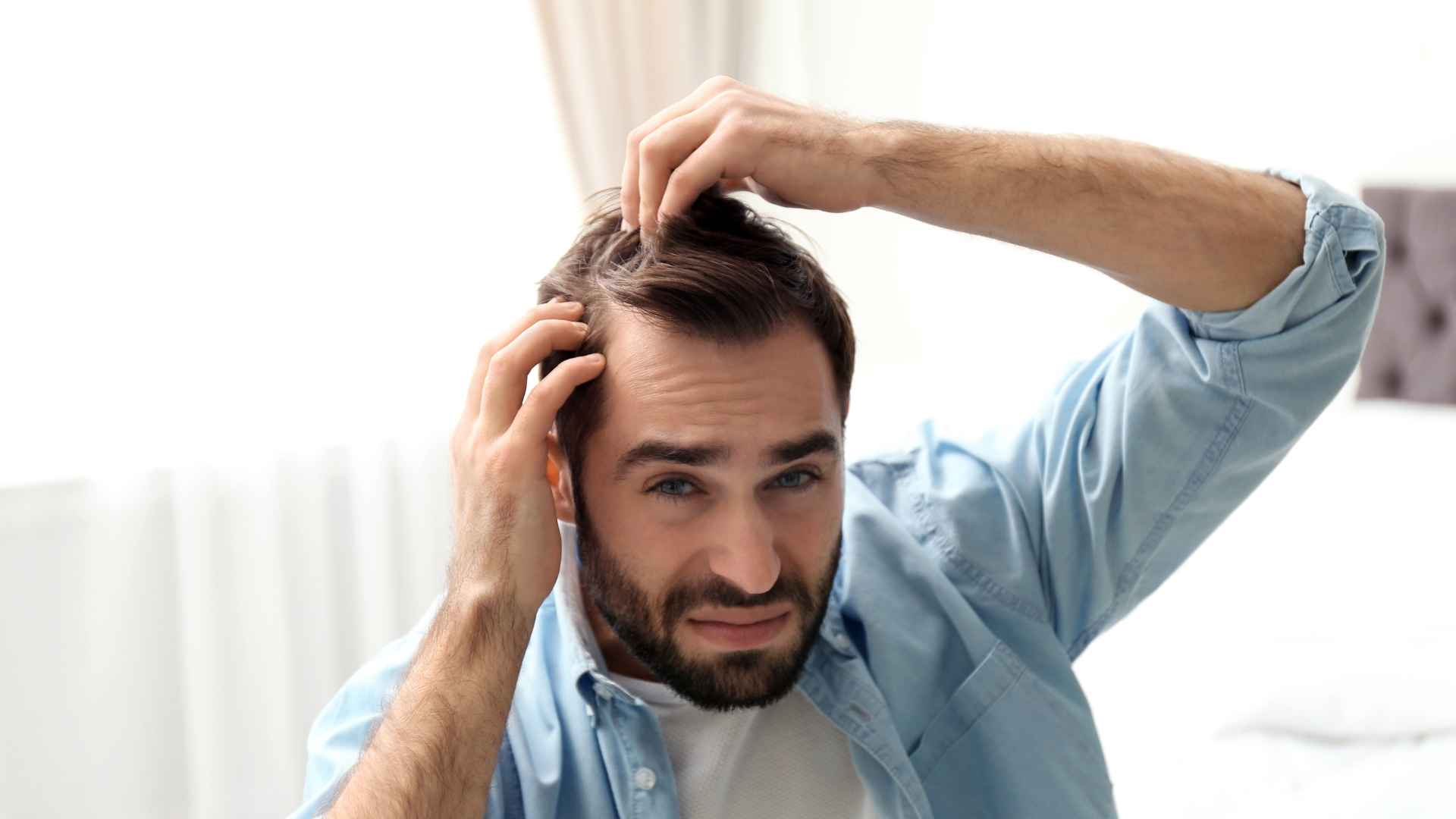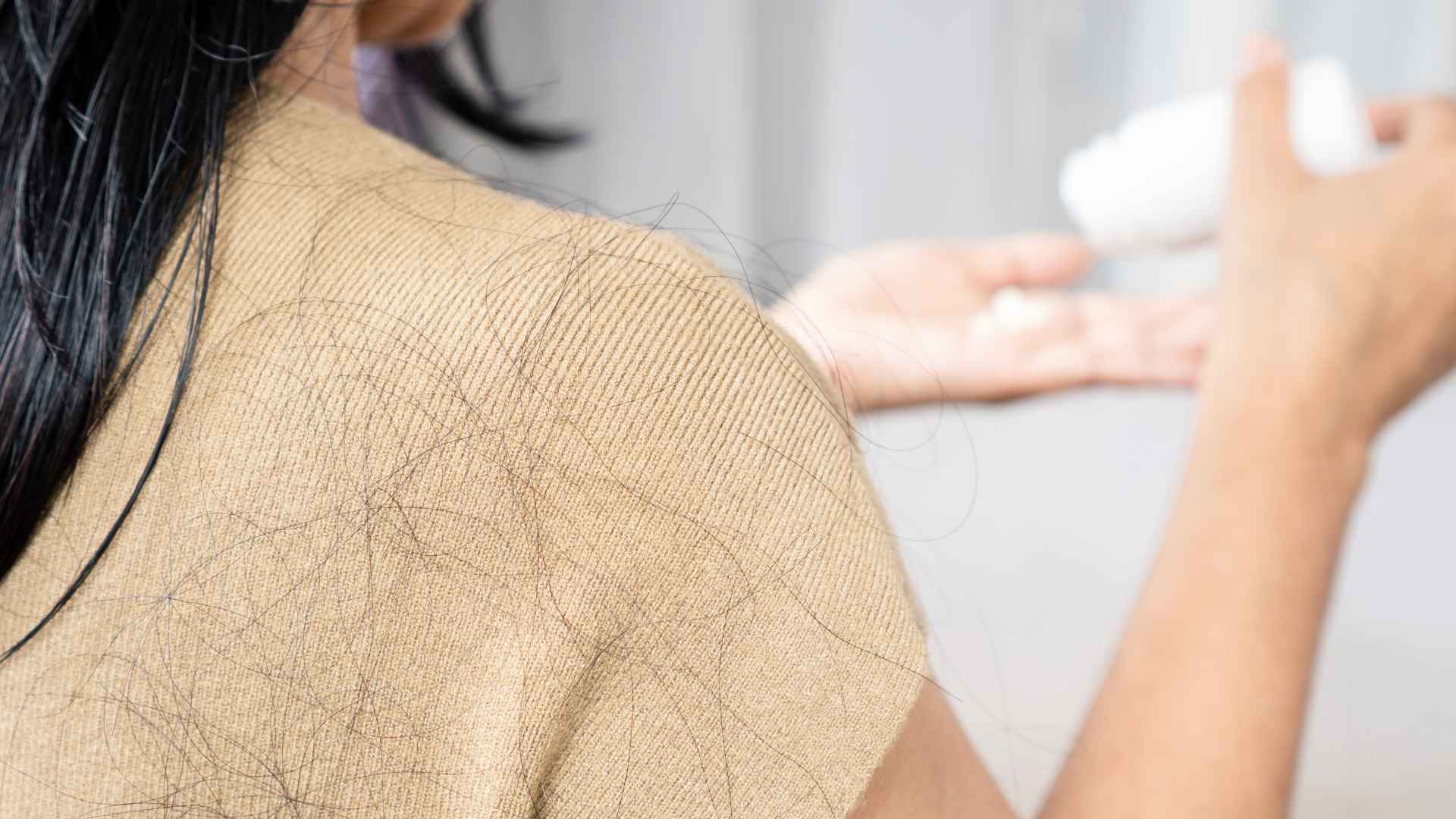It’s not uncommon for people to wonder about the potential connection between shampoo and hair loss. The health and appearance of our hair are important to us, and it’s natural to be concerned about the products we use on our scalp.
In this article, we aim to provide clarity and dispel any misconceptions surrounding the relationship between shampoo and hair loss. By examining the scientific evidence, we hope to shed light on this topic and help you make informed decisions about your hair care routine.
Hair Loss and Explain Its Common Causes

Hair loss, also known as alopecia, refers to the condition of losing hair from the scalp or other parts of the body. It can occur due to various factors, including genetic factors, hormonal imbalances, medical conditions, and lifestyle choices.
- Genetic Factors: The most common cause of hair loss is hereditary or genetic factors. This type of hair loss, known as androgenetic alopecia or male/female pattern baldness, is influenced by a person’s genes and can be inherited from either the mother or father.
- Hormonal Imbalances: Hormonal changes can also contribute to hair loss. For example, hormonal imbalances during pregnancy or after childbirth, as well as hormonal changes associated with menopause, can trigger temporary hair loss. Hormonal disorders such as polycystic ovary syndrome (PCOS) can also lead to hair loss.
- Medical Conditions: Certain medical conditions can cause hair loss. These include thyroid disorders (hyperthyroidism or hypothyroidism), autoimmune conditions like alopecia areata, scalp infections (such as ringworm), and medical treatments like chemotherapy.
- Lifestyle Choices: Certain lifestyle choices can impact hair health and potentially contribute to hair loss. Factors such as poor nutrition, rapid weight loss, excessive hairstyling (tight hairstyles, frequent heat styling), and the use of harsh chemicals or improper hair care practices may weaken hair and lead to breakage and hair loss.
It is important to note that multiple factors often work together to cause hair loss. While shampoo plays a role in maintaining scalp and hair health, it is unlikely to be a direct cause of hair loss unless it contains harsh ingredients or is used improperly. Therefore, it is crucial to understand the specific role of shampoo and consider it in conjunction with other contributing factors when addressing hair loss concerns.
Purpose of Shampoo and Its Primary Function of Cleansing the Scalp and Hair
Shampoo plays a vital role in maintaining scalp and hair health. Its primary function is to cleanse the scalp and hair by removing dirt, excess oil, and product buildup. By doing so, shampoo creates a cleaner environment that promotes healthier hair growth.
The scalp produces sebum, a natural oil that helps keep the scalp moisturized. However, excessive sebum production can lead to oily scalp, clogged hair follicles, and potential scalp issues. Shampoo helps to remove the excess sebum, dirt, and impurities, preventing them from accumulating on the scalp. This can help to create a more balanced scalp environment and support optimal hair growth.
In addition to cleansing, many shampoos also contain ingredients that provide nourishment and hydration to the hair and scalp. These ingredients can help improve the overall health and appearance of the hair.
However, it’s important to note that while shampoo can contribute to maintaining a healthy scalp environment, it is not a standalone solution for treating hair loss caused by genetic factors or medical conditions. These underlying causes require targeted treatments and interventions. Shampoo should be seen as a part of a comprehensive hair care routine, alongside other factors such as nutrition, stress management, and medical treatment when necessary.
Choosing the right shampoo for your specific hair and scalp needs is important. It’s advisable to look for shampoos that are gentle, pH-balanced, and free from harsh sulfates or other potential irritants. If you have specific concerns about hair loss, it may be beneficial to consult with a dermatologist or trichologist who can provide personalized recommendations based on your unique situation.
Remember, while shampoo plays a role in scalp and hair health, it is just one piece of the puzzle in maintaining overall hair health and managing hair loss concerns effectively.
Various Ingredients Commonly Found in Shampoos and Their Potential Effects on Hair Health

Shampoos contain a variety of ingredients, each with its own purpose and potential effects on hair health. Here are some common ingredients and their potential benefits:
- Moisturizing Agents: Ingredients like glycerin, panthenol (provitamin B5), and natural oils (such as coconut oil or argan oil) can help moisturize and hydrate the hair, reducing dryness and improving its overall texture and appearance.
- Scalp Health Promoters: Some shampoos include ingredients like tea tree oil, aloe vera, or salicylic acid, known for their potential antibacterial or anti-inflammatory properties. These ingredients can help maintain a healthy scalp environment, reducing itchiness, dandruff, and scalp inflammation.
- Protein and Keratin: Shampoos containing protein or keratin can help strengthen the hair and minimize breakage. These ingredients can temporarily improve the hair’s resilience and make it more resistant to damage.
- Anti-Dandruff Agents: If you have dandruff or a flaky scalp, shampoos with ingredients like zinc pyrithione, selenium sulfide, or ketoconazole can be beneficial. These ingredients target the underlying causes of dandruff, such as fungal growth or excessive skin cell turnover.
While many ingredients in shampoos can offer benefits, it’s essential to be aware of potential concerns related to certain ingredients:
- Harsh Chemicals: Some shampoos contain harsh chemicals like parabens, formaldehyde, or phthalates, which may cause scalp irritation or allergic reactions in some individuals. It’s advisable to choose shampoos that are labeled as “gentle” or “sensitive” if you have a sensitive scalp.
- Sulfates: Sulfates, such as sodium lauryl sulfate (SLS) and sodium laureth sulfate (SLES), are common foaming agents in shampoos. While they help create lather, they can be drying and potentially strip the hair of its natural oils. If you have dry or sensitive hair, sulfate-free shampoos may be a better option.
To address potential concerns, it’s important to read the labels and choose shampoos that suit your specific hair and scalp needs. If you have specific scalp conditions or concerns, it may be beneficial to consult with a dermatologist or trichologist who can recommend suitable shampoos or provide personalized advice.
Remember, everyone’s hair and scalp are unique, so finding the right shampoo that works for you may require some experimentation. Pay attention to how your hair and scalp respond to different products, and make adjustments accordingly.
Possibility of Allergic Reactions or Sensitivities to Certain Shampoo Ingredients
While allergic reactions or sensitivities to shampoo ingredients are relatively rare, they can occur in some individuals. An allergic reaction can result in scalp inflammation, redness, itching, or even a rash. In some cases, these reactions may cause temporary hair loss as a result of the inflammation and irritation.
Common allergens found in shampoos include fragrance ingredients, preservatives (such as parabens), and certain surfactants. However, it’s important to note that not all individuals will react to these ingredients, and sensitivities can vary from person to person.
If you experience any adverse reactions or suspect a sensitivity to a shampoo, it is recommended to discontinue its use immediately. Switching to a different shampoo that is free from the suspected allergen or irritant is usually sufficient to alleviate the symptoms. If the reaction persists or is severe, it is advisable to seek medical advice from a dermatologist or allergist for proper evaluation and guidance.
To minimize the risk of allergic reactions or sensitivities, consider the following tips:
- Read Labels: Carefully read the ingredient list of shampoos and look for potential allergens or irritants that you have reacted to in the past.
- Patch Test: Before using a new shampoo for the first time, perform a patch test. Apply a small amount of the product on your inner forearm and observe for any adverse reactions for 24-48 hours.
- Choose Hypoallergenic or Fragrance-Free Options: Opt for shampoos labeled as “hypoallergenic” or “fragrance-free” as these are less likely to contain common allergens.
- Seek Professional Advice: If you have a known history of allergies or sensitivities, consult with a dermatologist or allergist to determine suitable shampoo options and receive personalized recommendations.
Remember, while allergic reactions or sensitivities to shampoo ingredients can occur, they are relatively rare. By being aware of potential allergens, performing patch tests, and seeking professional guidance if needed, you can minimize the risk and find the right shampoo that works well for your hair and scalp without causing adverse reactions.
Importance of Proper Hair Care Practices for Maintaining Healthy Hair

Proper hair care practices are essential for maintaining healthy hair. Here are some recommendations to consider:
- Choose the Right Shampoo: Select a shampoo that is suitable for your hair type and concerns. Look for gentle formulas that are free from harsh sulfates and potential irritants. Consider factors such as dryness, oiliness, or specific scalp conditions when choosing a shampoo.
- Avoid Excessive Heat Styling: Limit the use of heat styling tools like flat irons, curling irons, and blow dryers, as excessive heat can damage the hair and lead to breakage. When using heat styling tools, always use a heat protectant spray and keep the temperature at a moderate level.
- Be Gentle during Washing: Avoid over-washing your hair, as this can strip away natural oils and cause dryness. Stick to a washing schedule that suits your hair type and lifestyle. When washing, use a gentle massaging motion to cleanse the scalp, but avoid vigorous scrubbing, as it can lead to scalp irritation.
- Nourish from Within: Maintain a balanced diet that includes a variety of nutrients important for hair health. Protein, vitamins (such as biotin, vitamin E, and vitamin D), minerals (like iron and zinc), and omega-3 fatty acids are particularly beneficial for hair growth and strength. Stay hydrated by drinking plenty of water.
- Protect from Environmental Damage: Shield your hair from environmental stressors such as sun exposure, chlorine, and pollution. Wear a hat or use hair products with UV protection when spending time in the sun. Rinse your hair with clean water after swimming in chlorinated pools or saltwater.
- Avoid Tight Hairstyles: Avoid hairstyles that pull on the hair, such as tight ponytails, braids, or buns. These can lead to hair breakage and traction alopecia, a type of hair loss caused by excessive tension on the hair follicles.
Remember, healthy hair is a reflection of overall health. A balanced lifestyle, proper nutrition, and good hair care practices can contribute to strong and vibrant hair. If you have specific concerns about hair loss or scalp conditions, it’s advisable to consult with a dermatologist or trichologist for personalized advice and guidance.
Consulting with Professionals
If you are experiencing persistent or concerning hair loss, it is highly recommended to consult with healthcare professionals, such as doctors, dermatologists, or trichologists. These experts have the knowledge and expertise to evaluate your specific situation and provide personalized advice and recommendations.
Healthcare professionals can conduct a thorough evaluation to determine the underlying cause of your hair loss. They may perform a physical examination, review your medical history, and potentially order additional tests or blood work to assess factors such as hormonal levels, nutrient deficiencies, or any underlying medical conditions.
Based on the evaluation, healthcare professionals can offer tailored recommendations for managing and treating your hair loss. This may include lifestyle modifications, dietary changes, specific hair care practices, and, in some cases, medical interventions or treatments. They can also provide guidance on potential underlying factors that contribute to hair loss, such as hormonal imbalances or scalp conditions.
By consulting with professionals, you can gain a better understanding of your hair loss concerns and receive appropriate guidance and support. They can help you navigate the available treatment options and suggest the most effective strategies to address your specific needs.
Remember, everyone’s hair loss situation is unique, and the causes and treatments can vary. Consulting with healthcare professionals ensures that you receive individualized care and make informed decisions regarding your hair health.
Watch Does frequent hair wash increase hairfall? Video
Top 5 FAQs and answers related to can shampoo cause hair loss
Can shampoo cause hair loss?
While it’s unlikely that shampoo directly causes hair loss, certain harsh ingredients or improper use of shampoo can lead to scalp irritation, dryness, or breakage, which may contribute to temporary hair loss.
Are sulfate-free shampoos better for preventing hair loss?
Sulfate-free shampoos can be a good option for individuals with sensitive scalps or dry hair, as sulfates can be drying. However, the choice of shampoo alone may not prevent hair loss caused by genetic factors or medical conditions.
How often should I shampoo my hair to prevent hair loss?
The frequency of shampooing depends on various factors, including hair type, scalp condition, and personal preference. Washing your hair regularly can help maintain scalp health, but over-washing may lead to dryness and potential damage. Find a balance that works for your hair and scalp.
Can changing shampoos cause temporary hair shedding?
Switching shampoos itself is unlikely to cause hair shedding. However, if you switch to a shampoo that is significantly different in formulation or contains ingredients your scalp may react to, it could potentially trigger temporary shedding due to scalp irritation.
What ingredients should I avoid in shampoos to prevent hair loss?
While there is no specific ingredient that directly causes hair loss, some individuals may have sensitivities or allergies to certain ingredients. If you suspect an adverse reaction, avoid shampoos containing potential allergens or irritants and opt for gentle formulas suitable for your hair and scalp needs.
Conclusion:

In conclusion, it is important to understand that shampoo, when used appropriately and with proper hair care practices, is unlikely to cause hair loss. Shampoo plays a vital role in maintaining a clean and healthy scalp, which is conducive to hair growth.
Hair loss is often influenced by various factors such as genetics, hormonal imbalances, medical conditions, and lifestyle choices. While choosing the right shampoo and practicing good hair care habits are important for overall hair health, they alone may not address underlying causes of hair loss.
It is essential to focus on maintaining a balanced diet, practicing proper hydration, managing stress, and seeking professional guidance when needed. Consulting with healthcare professionals, dermatologists, or trichologists can provide personalized evaluations and recommendations based on individual circumstances.
If you have concerns about hair loss, it is always recommended to seek professional advice. They can help determine the underlying causes, provide appropriate treatments or interventions, and offer support throughout the process.
Remember, with the right approach to hair care and guidance from professionals, you can address hair loss concerns effectively and promote overall hair health.
Please share this Can Shampoo Cause Hair Loss? Guide to Debunking the Myths with your friends and do a comment below about your feedback.
We will meet you on next article.
Until you can read, When to Expect Hair Loss After Chemotherapy Treatment? Guide